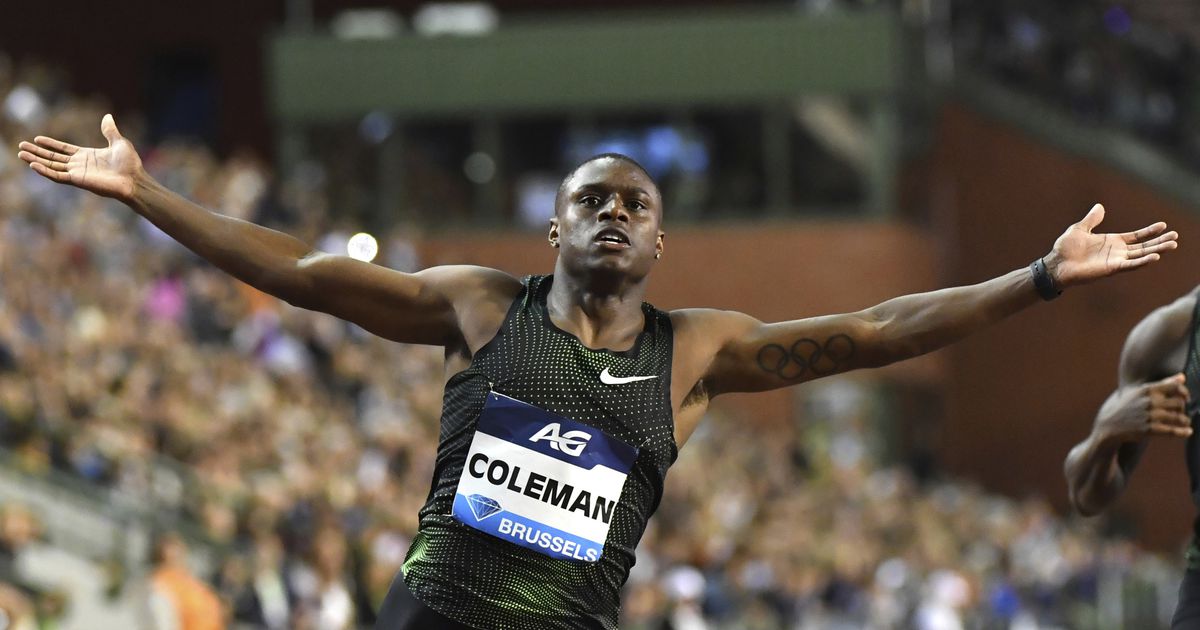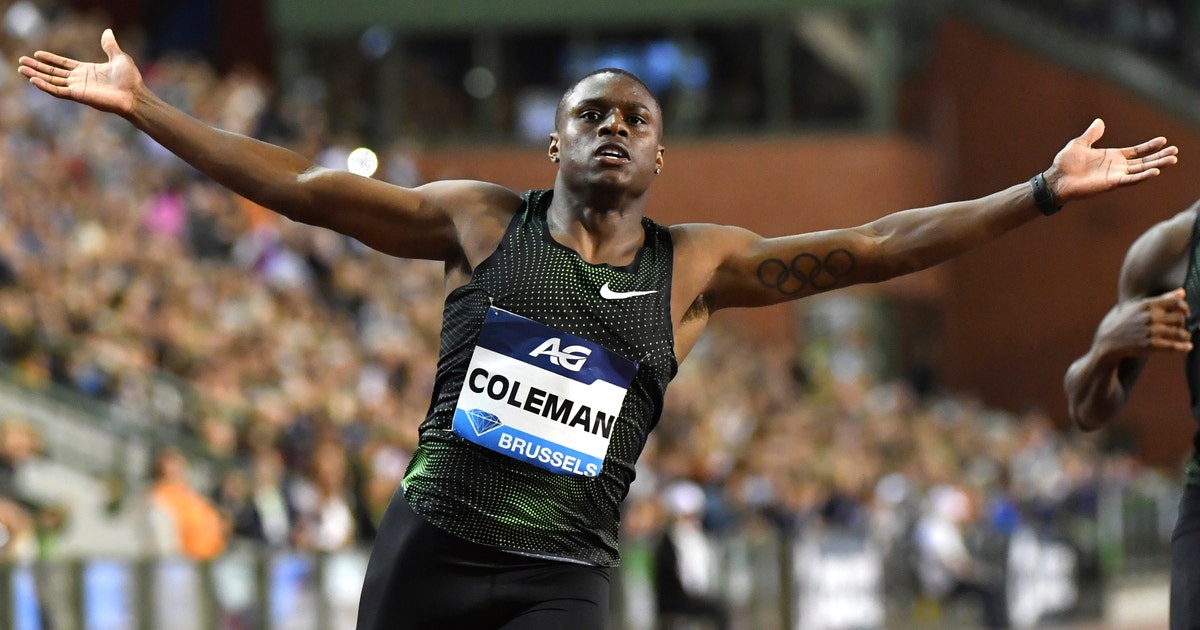History lesson: Coleman learns from past, tries to move on


DOHA, Qatar (AP) — Christian Coleman never intended to take a crash course on the history of his sport. He got one anyway.
Among the main lessons the sprinter learned: Anytime track fans see the words “doping” and “American” in the same headline — and it has happened an awful lot over the years — things usually don’t end well.
The 23-year-old favorite in the 100 meters has never doped, or even been accused of doping. But since his name made headlines for missing some tests, he finds himself part of a news cycle that he’d really like to break. His chance comes Friday when the men line up for heats at world championships.
“As far as people taking that headline and jumping to a conclusion, ‘Oh, he has to be doing something,’ I think people think that anyway, because of the history of U.S. sprinting,” Coleman said Tuesday night after a steamy workout at the practice stadium in Doha. “People just assume and make up storylines anyway, but then when you have a situation like that, I can understand why people would think that.”
Coleman, who holds the fastest time in the 100 over each of the last three years, got ensnared in the doping drama after word of his so-called whereabouts failures leaked to the media last month. The U.S. Anti-Doping Agency ended up dropping the case over a technicality in a very confusing rulebook. But that didn’t prevent Coleman from enduring damage in the court of public opinion.
Coleman most certainly is not in the same category as some of the people he’s been reading about of late — Tim Montgomery, Marion Jones, Tyson Gay, among other big-name Americans to get busted for doping over the years.
“I’m just a regular guy who had talent and the wherewithal to be able to hone that into something I can make money doing,” Coleman said. “I’m just really blessed the situation was resolved.”
How might the fans react if Coleman wins the final on Saturday? Justin Gatlin, the defending champion who himself has served a pair of doping bans, said he reached out to Coleman — both went to University of Tennessee — and told him to put it out of his mind.
“You (can get) consumed by social media and people’s opinions,” said Gatlin, whose victory in 2017 was greeted with boos from an unforgiving crowd in London. “Opinions hold a lot of weight sometimes and it can get to you. Why not (let it) have the opposite effect, where you just really focus on positivity?”
Last week, Coleman posted a 22-minute video on YouTube that served as his attempt to explain the situation without his words being filtered through the media. On Tuesday, he was patient with reporters, insistent that he had said all he needed to say — yet still willing to expand a bit more about what he’s learned, before a friend pulled him away in the middle of a question.
“Obviously, if you study track, you know the history, and you see me and this headline, and me running fast times, you can put two and two together and make up an assumption,” Coleman said. “Not much I can do now. I’ve explained the situation and I don’t take anything. I just go out there and try to compete to the best of my abilities.”






